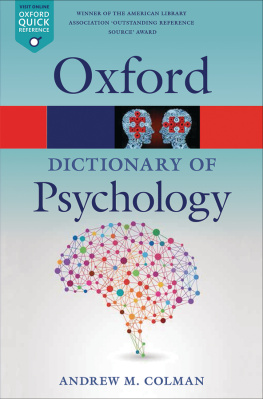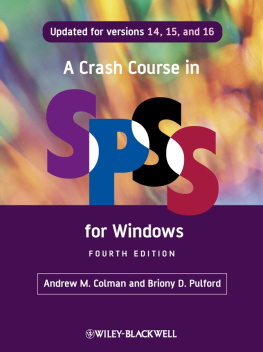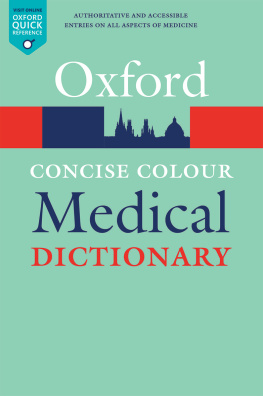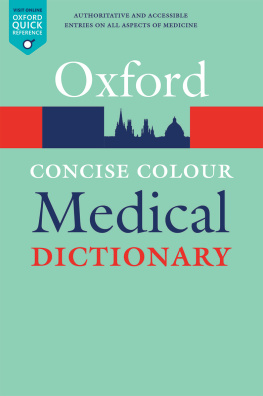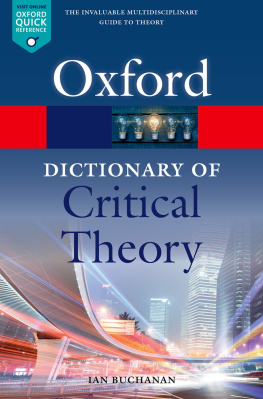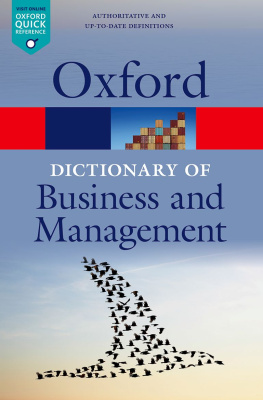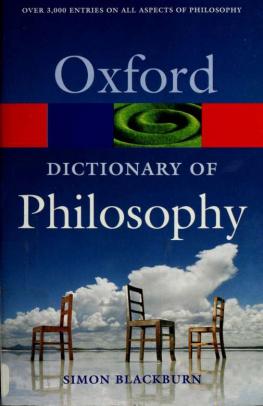While most e-readers can display special characters (such as and ), many cannot search for words containing them, unless the special characters themselves are typed into the search box. If you are unable to type these characters, please browse for your term using the .
A Dictionary of
Psychology
FOURTH EDITION
ANDREW M. COLMAN
Andrew M. Colman is Professor of Psychology at the University of Leicester and is a Fellow of the British Psychological Society. He has authored numerous journal articles and several books, including Facts, Fallacies and Frauds in Psychology ( 1987 ), What is Psychology? (3rd edn, 1994), and Game Theory and its Applications in the Social and Biological Sciences (2nd edn, 1995 ). He edited the two-volume Companion Encyclopedia of Psychology ( 1994 ) and the 12-volume Longman Essential Psychology series ( 1995 ).

Many entries in this dictionary have recommended web links. A complete list of links for this title can be found at www.oxfordreference.com/page/psych

Great Clarendon Street, Oxford, OX2 6DP, United Kingdom
Oxford University Press is a department of the University of Oxford. It furthers the University's objective of excellence in research, scholarship, and education by publishing worldwide. Oxford is a registered trade mark of Oxford University Press in the UK and in certain other countries
Andrew M. Colman 2001, 2002, 2003, 2006, 2009, 2015
The moral rights of the authors have been asserted
First published 2001
First published as an Oxford University Press paperback 2002
Reissued with corrections and new cover 2003
Second edition 2006
Third edition 2009
Fourth edition 2015
All rights reserved. No part of this publication may be reproduced, stored in a retrieval system, or transmitted, in any form or by any means, without the prior permission in writing of Oxford University Press, or as expressly permitted by law, by licence or under terms agreed with the appropriate reprographics rights organization. Enquiries concerning reproduction outside the scope of the above should be sent to the Rights Department, Oxford University Press, at the address above
You must not circulate this work in any other form and you must impose this same condition on any acquirer
Published in the United States of America by Oxford University Press 198 Madison Avenue, New York, NY 10016, United States of America
British Library Cataloguing in Publication
Data Data available
Library of Congress Control Number: 2014947484
ISBN 9780199657681
ebook ISBN 9780191744358
Links to third party websites are provided by Oxford in good faith and for information only. Oxford disclaims any responsibility for the materials contained in any third party website referenced in this work.
The Red Queen shook her head. You may call it nonsense if you like, she said, but I've heard nonsense, compared with which that would be as sensible as a dictionary!
Lewis Carroll: Through the Looking-Glass
The aim of this dictionary is to provide sensible and informative definitions of the most important and difficult words that a reader is likely to encounter in books and articles on psychology. Other dictionaries of psychology are available, but they do not generally seek to provide detailed coverage of the more technical terminology of neuroanatomy, neurophysiology, psychopharmacology, and statistics, and most of them make no systematic attempt to cover the specialized vocabulary of psychoanalysis. This dictionary provides systematic coverage of these areas, in addition to the basic terminology of psychology and psychiatry, and the definitions contain more explicit factual information and explanation than is available in other dictionaries.
This fourth edition incorporates a large number of improvements and additions. The publication in 2013 of the American Psychiatric Associations latest diagnostic and statistical manual DSM-5 necessitated a radical revision of many of the entries relating to mental disordersevery mental disorder specifically named in DSM-5 is included in this edition and clearly identified as a DSM-5 disorder. Many other entries required amendment or updating, for sundry reasons. In this new edition, more than 750 of the entries carried over from the third edition have been revised. To bring the dictionary fully up to date, Oxford University Press have permitted me to add more than 200 completely new entries (, and many others), over 40 new abbreviations, and 12 new illustrations. Finally, I have revised all three appendices.
The definitions are as simple as possible, but no simpler than that. Many of the concepts of psychology are inherently difficult and, if they are to be treated seriously, they ought not to be oversimplified or trivialized. In recognition of this, the definitions attempt to provide enough information to enable the serious reader to grasp the fundamental meaning and significance of even the more difficult concepts. Thus, for example, the entry under the headword provide enough information for the reader to grasp the fundamental ideas behind the theories and to understand how they actually work, and the same approach is adopted with other difficult terms. The aim is always to respect genuine difficulties and complexities but to provide the clearest possible definitions using the simplest possible language relative to the ideas being discussed.
Two unusual features of this dictionary deserve mention here. First, in many cases important terms and concepts are attributed to their originators or discoverers and, at the request of the publisher, when individuals are mentioned by name, their birth and death dates are usually supplied, although some dates, especially death dates, have been impossible to discoverpeople sometimes make significant contributions and then fade away into obscurity. Second, the entries are far more extensively cross-referenced than has been customary in earlier dictionaries. For example, the entry under is cross-referenced to all twelve of the human cranial nerves, each of which has its own separate entry. The purpose of the cross-references is to enable a reader who has looked up a word to obtain additional information that is either directly or indirectly relevant to it, and in general to encourage the use of the dictionary as an aid to serious scholarship.
The selection of headwords for this dictionary was not an easy task. I had to discard many words that could have gone in, and hard choices had to be made. Dilemmas were resolved by asking the following two questions: Is the word used in psychological books and articles? Are readers likely to want to look it up? Speaking on BBC radio in September 1999, the England football coach, Kevin Keegan, commented memorably: Picking the team isn't difficult; what's difficult is deciding which players to leave out. I faced the same problem picking headwords for this dictionary; the difficult part was deciding which words to leave out.

